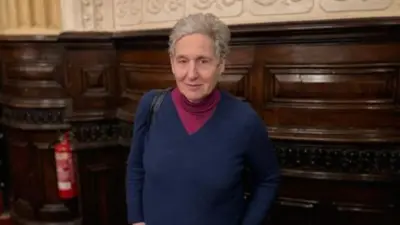We've updated our Privacy and Cookies Policy
We've made some important changes to our Privacy and Cookies Policy and we want you to know what this means for you and your data.
Assisted dying bill: What is in proposed law?
Image source, Getty Images
- Author, Michelle Roberts
- Role, Digital health editor, ┤¾Ž¾┤½├Į News
A for terminally ill adults in England and Wales has been formally introduced in the House of Commons.
MPs are due to debate and vote on the bill on 29 November - further debates and votes would be needed before the bill becomes law.
The bill - called the Terminally Ill Adults (End of Life) Bill - would make it legal for over-18s who are terminally ill to be given assistance to end their own life.
But there are requirements:
- They must be resident of England and Wales and be registered with a GP for at least 12 months
- They must have the mental capacity to make the choice and be deemed to have expressed a clear, settled and informed wish, free from coercion or pressure
- They must be expected to die within six months
- They must make two separate declarations, witnessed and signed, about their wish to die
- Two independent doctors must be satisfied the person is eligible - and there must be at least seven days between the doctorsŌĆÖ assessments
- A High Court judge must hear from at least one of the doctors and can also question the dying person, or anyone else they consider appropriate. There must be a further 14 days after the judge has made the ruling
Under the bill, a doctor could prepare the substance, but the person themselves must take it.
No doctor or anyone else would be allowed to administer the medication to the terminally ill person. Doctors would also not be under any obligation to take part in the assisted dying process.
This is called physician-assisted suicide. Voluntary euthanasia is different and is where a health professional administers the drugs to the patient.
And as well as the list of requirements above, the bill would make it illegal for someone to pressure, coerce or use dishonesty to get someone to make a declaration that they wish to end their life or to induce someone to self-administer an approved substance.
If someone is found guilty of either of these actions, they could face a jail sentence of up to 14 years.
The law would apply to England and Wales. A separate bill is already under discussion in Scotland.
Meanwhile, politicians in Jersey and the Isle of Man have already backed plans to introduce assisted dying and the process to bring in legislation is under way.
Top Stories
More to explore
Most read
Content is not available








